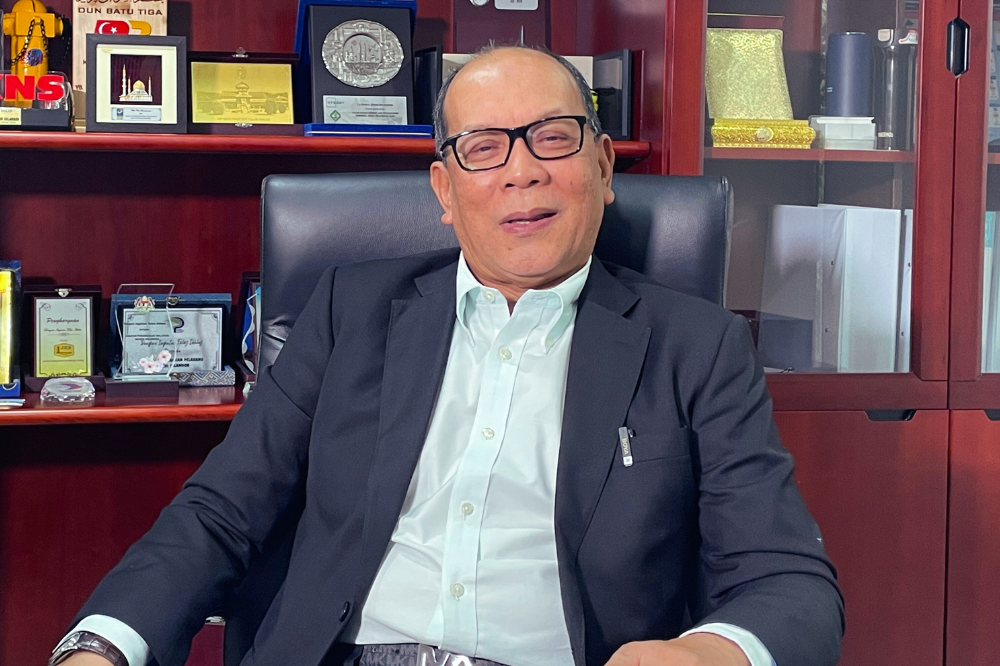Future of farming a reality in Selangor today as it leads in agricultural innovation amid food security concerns
State Infrastructure and Agriculture Committee chairman Izham Hashim said the state government was dedicated to supporting the agriculture sector through modern farming, with a strong emphasis on innovation and research.
TASNIM LOKMAN SHARIFAH SHAHIRAH
SHAH ALAM - The Selangor state government is committed to enhancing modern agriculture and addressing food security challenges, particularly in light of the country’s dependence on imports for various essential produce.
State Infrastructure and Agriculture Committee chairman Izham Hashim said the state government was dedicated to supporting the agriculture sector through modern farming, with a strong emphasis on innovation and research.
“We've already launched five seed varieties, two for melon, two for corn, and one for papaya. These are the results of ongoing research in collaboration with GWG (Green World Genetics).
“We're also expanding our research into aquaculture, focusing on white prawns, tiger prawns, and fish like gurami, which is being studied right here in Selangor,” he told Sinar Daily during a Fireside Chat interview session.
Izham stressed that Malaysia still faces challenges in agricultural research, particularly in the development and commercialisation of seeds.
He said GWG, the only commercial seed research company in Malaysia was based in Selangor, while institutions like Universiti Putra Malaysia and Malaysian Agricultural Research and Development Institute (Mardi), despite involved in research, their efforts are not yet at a commercial level.
Izham acknowledged the limitations Selangor faces in livestock farming due to its limited land availability, emphasising the state's focus on feedlot systems rather than large-scale free-range farming.
For livestocks such as cows and goats, he said Selangor and Malaysia in general still relied heavily on imports, with only five per cent of beef and one per cent of mutton being locally sourced.
“We're importing 95 per cent of our beef and nearly all of our mutton, but feedlots offer a practical solution for us.
“We can rear cattle for a few months, then move them to the slaughterhouse. It's a sustainable way to manage the land constraints we face,” he said.
On Selangor’s progress in adopting modern agricultural methods, he said the state was already on the forefront of technology with the adoption of Internet of Things (IoT).
He emphasised that the foundation of agriculture in Selangor was based on modern farming, with the state already implementing IoT solutions to enhance productivity and efficiency.
“The future is now, it’s already happening because what may seem futuristic now is already a reality in Selangor,” he said, adding that mong technology used were drones for fertilisation and pesticide application in paddy fields, he said.
Despite these advancements, Izham admitted that Selangor was still not self-sufficient in food security, especially in rice production.
He pointed out that Malaysia’s self-sufficiency ratio for rice is only about 60 to 64 per cent, with the country heavily reliant on imports to meet its needs. Selangor’s 18,000 hectares of paddy land in the northwest of the state is all that can be allocated for rice farming due to limited land availability.
“We can’t expand paddy fields anymore, but we can focus on increasing productivity by planting more frequently and using modern farming methods to improve yields,” he added.
As Malaysia continues to face food security challenges, Selangor is positioning itself as a leader in modern agriculture and innovation, contributing to national efforts to increase self-sufficiency while also recognising the limitations posed by land availability.










